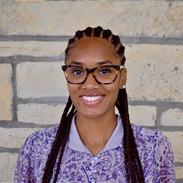What is Criminal Justice Studies?
The Bellarmine Bachelor of Arts in Criminal Justice Studies is an interdisciplinary degree focused on the justice system that prepares students for leadership roles in that field. Students will seek an understanding of crime and society, policy, policing, corrections, law, and more.
The Criminal Justice Studies major is a good choice for students interested in law school and other graduate degree programs, or careers in a wide range of fields that intersect with the justice system, such as law enforcement officer, social worker, lawyer, and more.
What makes Bellarmine’s approach to Criminal Justice Studies stand out?
In addition to applied and experiential classes that provide practical and hands-on knowledge, selected humanities courses in sociology, psychology, anthropology, and philosophy provide interpretations of issues involving crime and society that can only be found in a true liberal arts education. Faculty in the program have been selected because of their vast experience in the criminal justice field, from criminal profiling and policing to correctional administration and law.
The Student Perspective
 Gabrielle Fomby is a sophomore majoring in Criminal Justice Studies. Fomby recently completed an internship with the Kentucky Center for Restorative Justice which included research on the accessibility to legal counsel for those wrongly convicted of crimes. Fomby is on the Bellarmine track team, is the current president of the Criminal Justice, Sociology, and Anthropology club, and intends to pursue law school after Bellarmine.
Gabrielle Fomby is a sophomore majoring in Criminal Justice Studies. Fomby recently completed an internship with the Kentucky Center for Restorative Justice which included research on the accessibility to legal counsel for those wrongly convicted of crimes. Fomby is on the Bellarmine track team, is the current president of the Criminal Justice, Sociology, and Anthropology club, and intends to pursue law school after Bellarmine.
Here's what Fomby had to say about her experience in Bellarmine’s Criminal Justice Studies program.
Q: What made you want to study Criminal Justice?
GF: My big thing is advocacy and advocating for people who are less fortunate. So, I really wanted to be that voice for others. I'm really compassionate. I love helping people. I love talking to people. I felt that this would be the best route for me. I'm very passionate about helping those in need.
Q: How has your experience in this program helped you prepare for life after Bellarmine?
GF: I’ll leave some of my Criminal Justice classes and I'll apply what I've learned in that class to my everyday life, so it's not just something that only stays in that classroom. With Criminal Justice, and especially in the class that I'm taking right now, which is restorative justice, applying those restorative values to different aspects of my life has helped me view the world differently, view myself differently. I'm learning a lot about myself. I think it's also helped me to be a little bit more open minded. I considered myself open minded before coming into the Criminal Justice program, but I believe I'm going to graduate more open minded than I ever thought I could be. New doors are opening for me.
Q: What about Bellarmine’s Criminal Justice program has stood out to you?
GF: The willingness to help the students. Dr. Pruss—I've taken a class with her every semester since beginning of freshman year—she advocates for her students. She brings in people from different walks of life, she shares personal stories, things like that. I think the program does a really good job of making sure that students have what they need and advocating for students the way that I want to advocate for someone else.
Q: Can you describe the relationships you build with your fellow students and professors in this department?
GF: The things that we talk about in class, you really get to know [your fellow students]. And then, when you see them outside of class, it's not just barely a “Hey,” it's like, “Hey, how are you doing? You talked about this in class, how's that going?” Or, “You have a dance competition coming up, how is that going?” Things like that. It's really nice to have bonds and connections with people. That was something that I was worried about coming into college because I'm a very private person. I keep my circle very small. My circle is still small, but I'm reaching out more. I feel like I'm creating more relationships with people, and I'm not scared to go up and say hi to someone. I don't have that anxiety [because] we have classes together, so we know each other, so it's definitely easier.
Q: Can you describe any academic support systems in this major, whether from faculty, fellow students, or a university-led initiative?
GF: The students know a lot about a lot of different things. I don’t always have to go to a professor. I don't always have to email someone. I can text a student, “Hey, know anything about this?” And [they either do or] can direct you to the correct person. That goes for professors as well. If they do know, they could talk to you about it for hours to make sure that you understand, but if they don't know, it's like, “Oh, but I can send you the email of this person that might know,” and then they’re also very good at following up to make sure that the ball was not dropped.
Q: What would you say to a prospective student interested in studying Criminal Justice at Bellarmine?
GF: I would say be prepared to deal with things that you wouldn't think you would deal with, but not in a bad way. Like I said, I've learned a lot about myself. Some people may have their guard up and they don't want to learn about themselves, or they don't like learning about other things that may be hard to hear that other people go through. Be able to let that guard down and be open to the information that you're receiving.
Q: Do you feel like this program has helped you find a purpose or calling for life after college?
GF: Yeah, I definitely think that it's helped me see more of what path I want to go down. For example, what are the types of people I want to work with? I did grow up comfortable, [but middle school] was kind of my first eye-opening experience that people are going through things I didn't even know about. When you branch out, the more I’ve gone on—middle school, high school, college—a lot of people are going through things that I would have never imagined. So, I think that it’s definitely helped me see this is what I want to do because I want to help those people that I, at the beginning, didn't see or didn't know were going through certain things.
Q: Is there anything else you'd like to add about your experience?
GF: Make sure that you're open with professors. They want to help, but they don't know if you're struggling if you don't say anything. They're always willing to move a schedule—I don't think I've ever had a meeting with a professor [during their actual] office hours, it's always outside their office hours, and I never met a professor you can only meet during office hours. It's very flexible, they really care about the students, and I feel safe and comfortable and cared about here.
The Faculty Perspective
 Dr. Heather Pruss is an Associate Professor of Criminal Justice Studies whose research focuses on how oft-marginalized individuals experience the United States court system. She has done work on how capital jurors make life or death decisions, how indigent clients perceive their public defenders, and how family members and friends of homicide victims navigate case adjudication.
Dr. Heather Pruss is an Associate Professor of Criminal Justice Studies whose research focuses on how oft-marginalized individuals experience the United States court system. She has done work on how capital jurors make life or death decisions, how indigent clients perceive their public defenders, and how family members and friends of homicide victims navigate case adjudication.
Dr. Pruss says Bellarmine’s Criminal Justice Studies program stands out for the way it blends the university’s core values with the interdisciplinary work of the major to prepare students to work within the criminal justice system.
“As a liberal arts institution, Bellarmine is guided by core values that affirm the intrinsic worth and dignity of every individual and emphasize the importance of cultivating engaged citizens who advocate for the public good,” Pruss says. “Through interdisciplinary coursework spanning criminal justice, sociology, psychology, anthropology, and more, students gain a well-rounded understanding of the root causes of criminal behavior and society’s responses to it. This broad foundation equips them with the critical thinking skills needed to analyze issues of crime, justice, and equity—challenging conventional approaches and envisioning innovative solutions to the pressing challenges within today’s criminal justice system.”
The field of criminal justice has many career options. Pruss says Bellarmine’s wide range of degree offerings empowers students to pair the Criminal Justice degree with a complementary major or minor in order to tailor their studies to their desired career.
“Aspiring to attend law school? A Political Science or Philosophy minor could enhance your foundation. Interested in crime scene investigation? Biology or Chemistry could be the right fit. Do you want to understand how race, class, and gender intersect with the criminal justice system? Consider pairing your major with Sociology, African & African American Diaspora Studies, or Women’s & Gender Studies. Want to explore why individuals engage in deviant behavior? Look into Psychology. Interested in working with diverse populations, such as migrants or displaced persons? Anthropology or Refugee & Forced Migration Studies would be a strong addition. Passionate about reimagining social responses to deviance? Consider Peace Studies. With so many ways to build out from your Criminal Justice Studies degree, Bellarmine offers a unique opportunity to create a well-rounded, personalized education that will set you apart in the job market.”
In addition to classroom learning, research projects, and community initiatives, Criminal Justice students complete an internship, and dedicated faculty coordinators help match students with internships that align with their interests. Pruss says the hands-on experience gained through internships doesn’t just give students a leg up on finding their first job, it provides them with valuable lifelong skills.
“Many of our interns have successfully transitioned into full-time positions at their internship sites after graduation,” Pruss says. “However, regardless of career outcomes, all students benefit from the opportunity to develop essential professional skills, including communication, problem-solving, and ethical decision-making. This real-world experience ensures that graduates leave Bellarmine not only with academic knowledge but also with practical skills that set them apart in their careers.”
Visit the Criminal Justice Studies program page for more information, including program highlights and career opportunities.